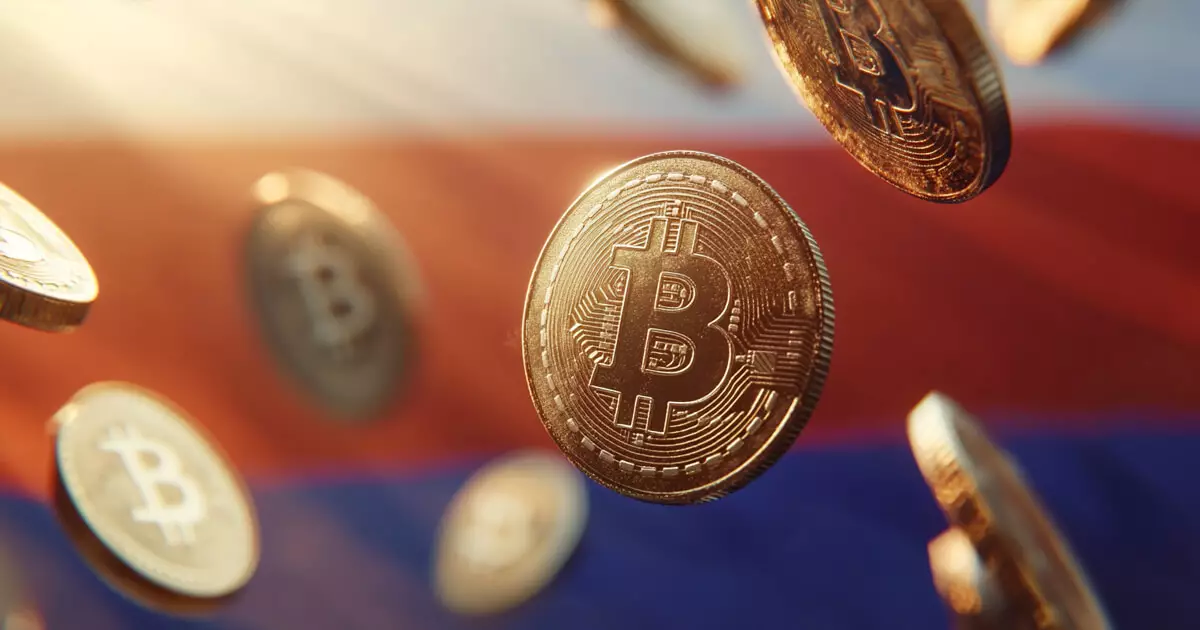In an intriguing turn of events, Russia is venturing into unchartered territory by contemplating the sale of Bitcoin that has been seized during criminal investigations. This bold legislative move, spearheaded by the Federal Bailiff Service, showcases a shift in how the Russian government perceives digital assets. The potential to transform confiscated cryptocurrencies into state revenue walks the line between opportunity and moral ambiguity. When a prominent figure such as Marat Tambiev, who was previously leading a major investigative committee, finds himself embroiled in a bribery scandal involving over a thousand Bitcoins, it raises ethical questions about the implications of state-led digital asset transactions.
The phrase “crypto bribery scandal” itself invokes skepticism, particularly as Russia grapples with a credibility crisis exacerbated by institutional corruption. The decision to develop a legal framework for trading seized Bitcoin could be seen as a desperate attempt to legitimize a flawed system rather than a proactive strategy to combat corruption. Indeed, as the state prepares to handle these digital currencies as direct assets, one must wonder if the focus is truly on recovery and justice, or if it is simply a ploy to extract financial gain from illicit actions.
Navigating the Legal Labyrinth of Digital Assets
The initiative led by Dmitry Aristov of the Federal Bailiff Service is undoubtedly ambitious, but it is riddled with uncertainties. The glaring absence of established legal pathways for the confiscation and sale of cryptocurrencies raises fundamental questions about state governance. If Russia hopes to sell these Bitcoin holdings, how can they ensure accountability and fairness in what is essentially a financial goldmine? The very fabric of law and order becomes frayed when officials are left to navigate a legal labyrinth without a clear mandate.
Contrasting this with the United States’ decision to build a Bitcoin reserve presents an interesting dichotomy. While the U.S. chooses a conservative approach that eschews selling existing Bitcoin in favor of gradual asset accumulation, Russia seems to favor a rapid monetization of seized assets. This divergence reflects broader attitudes toward cryptocurrency in state policy. Where the United States resists the temptation to engage in the speculative market, Russia appears to be diving in headfirst, raising concerns not just about the market itself but also about the motives behind these swift decisions.
Volatility and Value: The Risks of Gambling with Crypto
One cannot disregard the extreme volatility inherent in the cryptocurrency market. Deputy Finance Minister Vladimir Kolychev’s apprehension towards incorporating Bitcoin into national reserves is grounded in financial prudence. Indeed, the market’s unpredictability could pose significant risks to the Russian economy, especially when entangled with a political framework riddled with corruption and instability. The fact that Russian officials are preparing to convert seized crypto into cash underscores the inherent gamble they are willing to take, but at what cost?
It’s a strange juxtaposition where the state attempts to control an inherently decentralized system. While many see Bitcoin as a beacon of financial freedom, Russia’s potential foray could merely reinforce state power—a powerful elite reaping the rewards of a technology designed to circumvent traditional control measures. This reality cannot be ignored as the Russian government embarks on this complex journey. In a world already replete with ethical ambiguities, the management of confiscated digital assets may turn out to be another chapter in Russia’s intricate narrative of governance, corruption, and the quest for state power.

